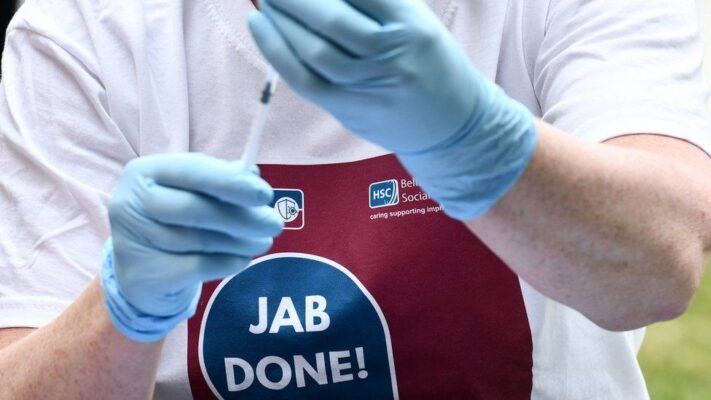
18 per cent of adults in North still not vaccinated
It is the first part of the UK to give jabs to teenagers in this age group with no underlying health conditions.
The move follows a recommendation by the Joint Committee on Vaccination and Immunisation (JCVI).
There are around 45,000 16 and 17-year-olds in the Nort of Ireland.
Both regional vaccination centres, including the Foyle Arena in Derry, and walk-in clinics here will provide a walk-in service for Pfizer vaccines.
ID and proof of date of birth will be required when attending either a regional vaccination centre or walk-in vaccination clinic.
For this age cohort ID examples include exam and birth certificates, school bus passes, work ID and provisional driving licences.
Health authorities are encouraging an early take up so that it is more effective when the new term starts in September.
Health Minister Robin Swann has welcomed the latest expansion to the vaccine roll-out.
“When formulating advice in relation to childhood immunisations, JCVI has consistently held that the main focus of its decision should be the benefit to children and young people themselves, weighed against any potential harms from vaccination to children and young people,” he said.
Queen’s University Belfast virologist Connor Bamford said a high vaccine uptake among 16 and 17 year-olds was key to making “the winter safer for all of us”.
“Upwards of 80% is what we would like, that is realistic,” he told BBC Radio Foyle.
“For their own health it is very good for them to get the vaccine, it is certainly safer than getting Covid.
“And on the other hand it will help stop and slow down transmission, particularly for that older group who are socialising more. If we slow transmission down it will stop it creeping up into more vulnerable groups.”
Derry GP Dr Tom Black, chairman of the British Medical Association (BMA) in the North of Ireland, said young people “take a very small risk for a huge benefit” by getting the vaccine and will not only protect themselves but “protect others” too.
He said they should “take the example” of older generations who have experience of vaccinations helping to prevent the spread of other health concerns.
“It’s just so important that we keep the pressure on here, we keep persuading and convincing people that they need to get their vaccination.”
Tags:




